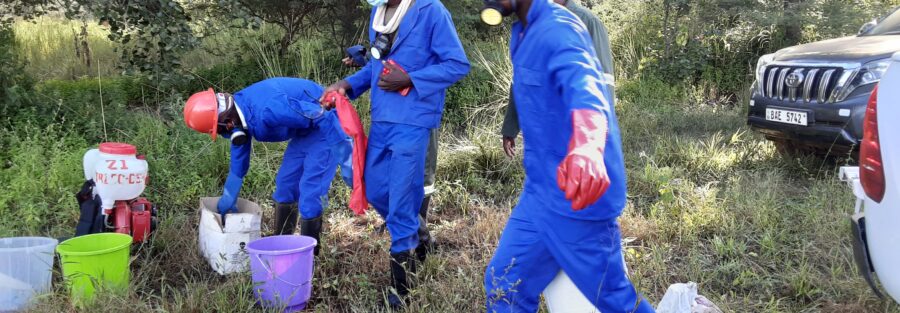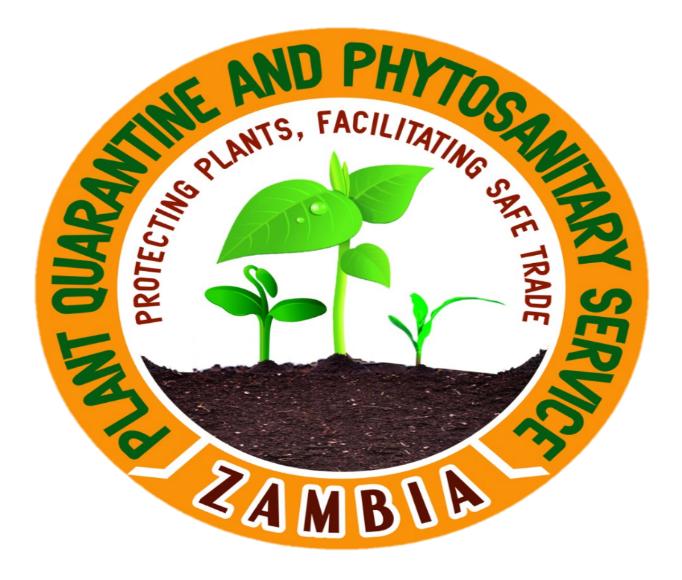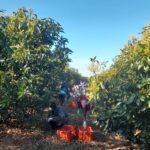By HAPPY MULOLANI
NIZA Sikombe, is one of the entrepreneur service providers who has given hope to rice farmers in Isoka district of Muchinga province
Established in Isoka in the early 2000s, NIZA Rice Mills began with limited capital with a small hammer mill to polish rice dubbed “Isoka Rice.”
When Mr Sikombe learnt of matching grants under E-SAPP, he crafted a proposal to help him expand his enterprise, and after assessment, his proposal was accepted for financing. Amid the realization that he was the only rice miller in the district, where farmers took their rice for polishing. Once financed, the procured machinery would meet the demands of the local people.
After applying for the matching grant, Mr Sikombe is elated that he obtained a grant of K2, 492,736 towards the overall total project cost valued at K4,285,303, which enabled him purchase a rice processing equipment. While, NIZA Mills financed 20% cash and 20% in-kind contribution, as per E-SAPP’s conditions and guidelines. This financing arrangement is meant to ensure sustainability of service providers committment with respect to a specific commodity of focus.
“With this new rice equipment, I will be able to buy rice from over 700 rice farmers in Isoka, which is an achievement because this means farmers can sale polished rice at a better price, as it is marketable and Isoka rice will flood the market,” Mr Sikombe said.
He emphasized that rice will be bought from all farmers in the district as long as it is quality rice.
“I will not be restrictive whom I purchase rice from because what is key is to provide farmers a reliable market,” Mr Sikombe revealed.
Over the years, with the population boom in the farming blocks in Isoka, more farmers have been growing rice using local varieties and poor cultivation methods, thereby limiting their production capacity.
Another major concern of rice farmers in Isoka remains an unorganized market which has led to low prices at times.
This realization led to the Farming As A Business Schools (FaaBS) with support from Enhanced Smallholder Agribusiness Promotion Programme (E-SPP) under the Ministry of Agriculture in Kantesha Agriculture camp to facilitate structured lessons focused on imparting and equipping farmers on the importance of improving their agronomic practices and entrepreneurship.
The idea is to boost their rice production by accessing improved rice variety such as Nerica4. They also learnt the importance of taking the production of rice as a business and also linkage to potential markets, which is reliable.
To sustain supplying NIZA Rice Mills, which is the strategic rice buyer in the district, the farmers organised themselves in four FaaBS in Kantenshya Agriculture camp and applied for a matching grant, after which they received a capital injection of K1,884,262.00 to enhance their rice production through purchase of mechanization and farming inputs. The four FaaBS have equally received support through the E-SAPP’s Covid-19 relief funds for construction of a bulking facility that will improve their marketing of their produces.
A rice farmer in Kantenshya Agriculture camp in Isoka district, who is also a Londamaka FaaBS member, Cynthia Nawelwa, believes the bulking centre will be a positive achievement for rice farmers in the area, as it will ensure farmers sell their rice profitably.
Ms Nawelwa explained that she was selling her unpolished rice in gallons pegged at K25, which was not profitable. But if she sold polished rice, a gallon would cost in the range K40 – K50 per gallon.
As she recalls, “previously, I used to cultivate rice using local variety, I never applied fertilizer neither did I weed the field, instead I burnt my field which was detrimental to rice production.”
For some time now, some rice farmers have reluctantly cultivated rice on a large scale due to low yields experienced. As a result, they have mainly grown rice for home consumption, with very little to sale due to the low prices “briefcase” buyers offer them.
Ms Nawelwa attributed the crop losses they have continued to incur in the past due to poor agronomic practices, among other obstacles already alluded to.
Another rice farmer, who is also Londamaka FaaBS Chairperson, Christopher Sinyinza, narrates that he grew rice in the uplands as per tradition by most farmers whose farms where situated in upland areas and produced rice known as Isoka rice.
“I merely cultivated rice using traditional method of broadcasting and also mixed local rice seed for home consumption only. But with these lessons about improved methods of cultivating rice, it has enhanced my production and developed a sense of entrepreneurship. This time around, I expect a good return on my investment,” Mr Sinyinza said.
With access to improved rice variety and good agronomic practices, farmers such as Nawelwa and Sinyinza are expected to enhance their rice production and also get value for their produce, which is among some of the major positive changes in Isoka district.
It is gratifying that the farmers’ plights of having strategic bulking centre is a milestone achievement. The concern of a reliable market is no longer problematic, as NIZA Rice Mills has come to the rescue of farmers in the district. All farmers need to focus on now is boosting their production, and productivity levels if they are to achieve a better income from their rice produce. This approach is expected to culminate into a spill-over effect to other districts in the province.
In this way, a surplus towards rice production will be recorded and positively contribute towards the rice deficit in the country which has been experienced for some time now. Ultimately, the programme’s intervention of strengthening market linkages with potential buyers is a matter of priority given the already high demand for rice. -NAIS



